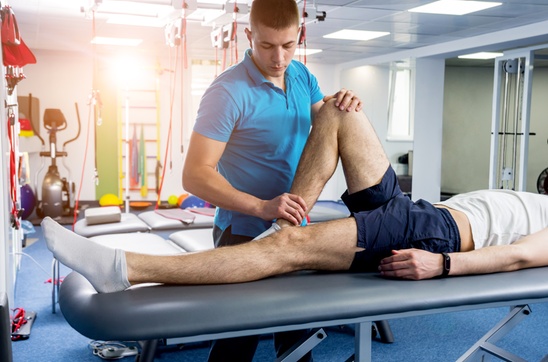Sports injury surgery, like any surgical procedure, carries certain risks and potential complications. These can vary based on the specific type of surgery, the patient’s overall health, and the nature of the injury. Some common risks and complications include:
- Infection: Post-surgical infections can occur at the incision site or deeper within the operated area. This can sometimes require additional treatment or surgery.
- Blood Clots: The formation of blood clots, particularly deep vein thrombosis (DVT), is a risk after surgery, which can be dangerous if they travel to the lungs (pulmonary embolism).
- Nerve Damage: Surgery may inadvertently damage surrounding nerves, leading to numbness, weakness, or chronic pain.
- Bleeding: Excessive bleeding during or after surgery can occur, sometimes necessitating a blood transfusion or additional surgery.
- Poor Wound Healing: Factors like infection, poor nutrition, or underlying health conditions can lead to delayed or poor wound healing.
- Scarring: Surgery often results in scars, and in some cases, these may be cosmetically unsatisfactory or lead to functional impairment if extensive.
- Loss of Mobility or Function: Despite surgery, there might be a reduced range of motion or loss of function in the affected area. Rehabilitation and physical therapy are often required to improve outcomes.
- Reaction to Anesthesia: Complications related to anesthesia can range from mild reactions like nausea to severe issues such as respiratory problems or allergic reactions.
- Implant Issues: In surgeries involving implants (e.g., screws, plates, prosthetics), there can be complications like implant loosening, breakage, or rejection.
- Re-Injury: Athletes are particularly at risk of re-injury if they return to sports activities too soon after surgery or without proper rehabilitation.
- Chronic Pain: Some patients may experience long-term pain following surgery, which can sometimes be worse than the pain experienced before surgery.
- Adhesions: Post-surgical adhesions are bands of scar tissue that can form and limit the movement of organs and tissues in the operated area, potentially causing pain and functional issues.
Patients considering sports injury surgery should discuss these risks and potential complications with their orthopedic doctor to make an informed decision and to understand the specific risks related to their individual health and surgical procedure.





Comments